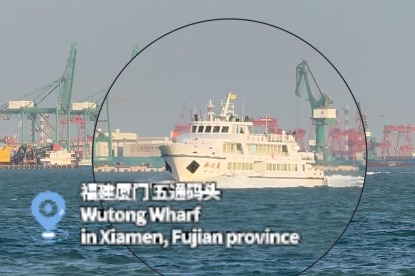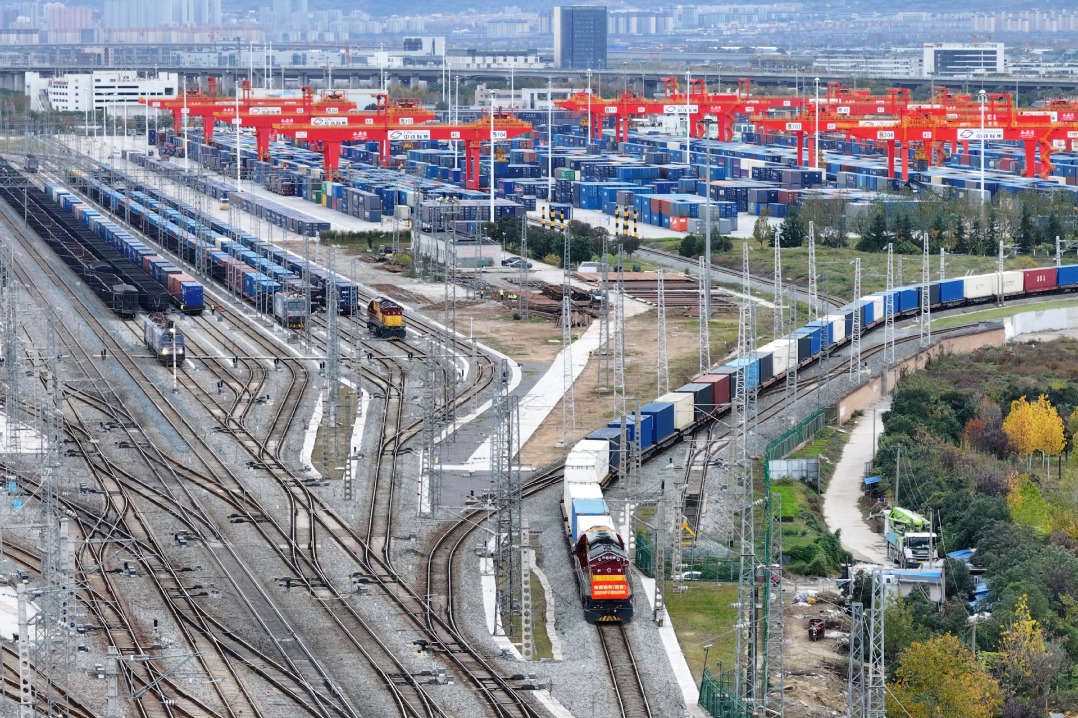It's time Japan faced its war crimes and militarist past

The 80th anniversary of the victory in the World Anti-Fascist War and the Chinese People's War of Resistance Against Japanese Aggression (1931-45) demands commemoration and reflection. For the international community, it symbolizes the hard-won triumph of peace over war and justice over injustice. For Japan, however, it poses a moral question: Will it sever ties with its militarist past and uphold justice or continue to shoulder the burden of denial?
Japan has never fully reflected on its aggressive acts and war crimes before and during the World Anti-Fascist War (World War II). Right-wing forces have repeatedly downplayed or glorified this history, promoting revisionist narratives that blur public understanding of World War II.
Japan's official stances have regressed over time, with the watering down of the expressions of remorse — from the 1995 Tomiichi Murayama statement, which explicitly acknowledged Japan's colonial rule and aggression in Asia, to the 2005 Junichiro Koizumi statement and the 2015 Shinzo Abe statement. The three are former prime ministers of Japan. The Murayama statement, with its "profound reflection" and "sincere apology", has even been vilified by right-wing Japanese politicians as a "masochistic historical view".
This shift stems from the changes in Japan's political landscape. With the collapse of the postwar "conservative versus reformist" divide, conservative parties now dominate the Japanese parliament, while left-wing forces advocating for constitutional protection and historical reflection have weakened. The mainstream political agenda prioritizes amending the Japanese Constitution, remilitarizing the country, and becoming a "normal state".
Once-vibrant peace groups in Japan have lost influence, and the younger generations, shaped by decades of conservative media manipulation, lack objective knowledge of Japan's militarism. Also, Japan's postwar reflection has been fixated on its victimhood as the target of nuclear bombs in Hiroshima and Nagasaki. And literary and cinematic works project Japan's "tragic narrative", cunningly obscuring the country's aggressive past.
As the 80th anniversary of victory of the Chinese People's War of Resistance Against Japanese Aggression approaches, discussions in Japan still center on victimhood, with some media outlets baselessly accusing China and Russia of using "historical cards" in their commemorations. Japanese Prime Minister Shigeru Ishiba, though relatively clear on historical issues, has abandoned plans for an official statement on the anniversary of the Aug 15, 1945, surrender of Japan in World War II under domestic pressure, highlighting the fragility of progressive historical views.
Japan's postwar path under its pacifist Constitution facilitated fast-paced development, but recent radical shifts in security policies are eroding this legacy. Japan is deviating from its "exclusively defense-oriented" pledge at an unprecedented speed, with its defense budget reaching 2 percent of GDP. Worse, Japan is developing capabilities for "enemy base strikes", hyping up the rhetoric on "China threat" and "Taiwan contingency", thus signaling its dangerous intentions to intervene in the Taiwan question and the South China Sea issue.
Japan is also promoting a "one-theater" concept with the United States, Australia and the Philippines, aiming to build an "Asian NATO" as part of a strategy to remove its postwar constraints and reclaim military agency.
Dubbed "proactive pacifism", this strategy rings hollow given Japan's largest military buildup since World War II. The fundamental contradiction that remains is how can neighbors trust a nation that refuses to face its aggressive past and tries to arm itself to maintain "peace"? Present day Japanese politicians' logic of using "external threats" to justify remilitarization eerily echoes the pre-World War II militarists who invoked "national survival" to justify their expansionist agenda.
Germany offers a stark contrast in terms of historical reckoning. Postwar German leaders courageously and sincerely atoned for Nazi crimes — from German chancellor Willy Brandt's "Warsaw kneeling" to nationwide war memorials, educational reform, and laws banning Holocaust denial. This thorough break with the past has earned Germany global respect and a central role in European integration. Japan's failure to do the same is glaring.
Japan stands at a crossroad. One path leads toward revisionism, glorification of aggression and the pursuit of military alliances, which may satisfy some Japanese leaders' political ambitions but risks Japan's moral isolation, subservience to great power games, and heightened tensions with neighbors.
The other path, modeled on Germany, requires honest reflection on history. For Asian victims to forgive its war crimes, Japan must first realign its historical narrative from the perspective of the real victims. Only then can it shed its historical burden, help heal wounds, and emerge as a responsible, trustworthy nation.
In this special year, Japan has to make a choice. The Chinese people hope to see Japanese politicians demonstrate political vision and moral courage to seize this historical moment, instead of criticizing or boycotting neighboring countries' memorials. The world is watching.
The views don't necessarily reflect those of China Daily.

Today's Top News
- Xi's message for New Year widely lauded
- New Year's address inspiring for all
- Xi congratulates Science and Technology Daily on its 40th anniversary
- Xi congratulates Guy Parmelin on assuming Swiss presidency
- China Daily launches 'China Bound'
- Manufacturing rebounds in December






























